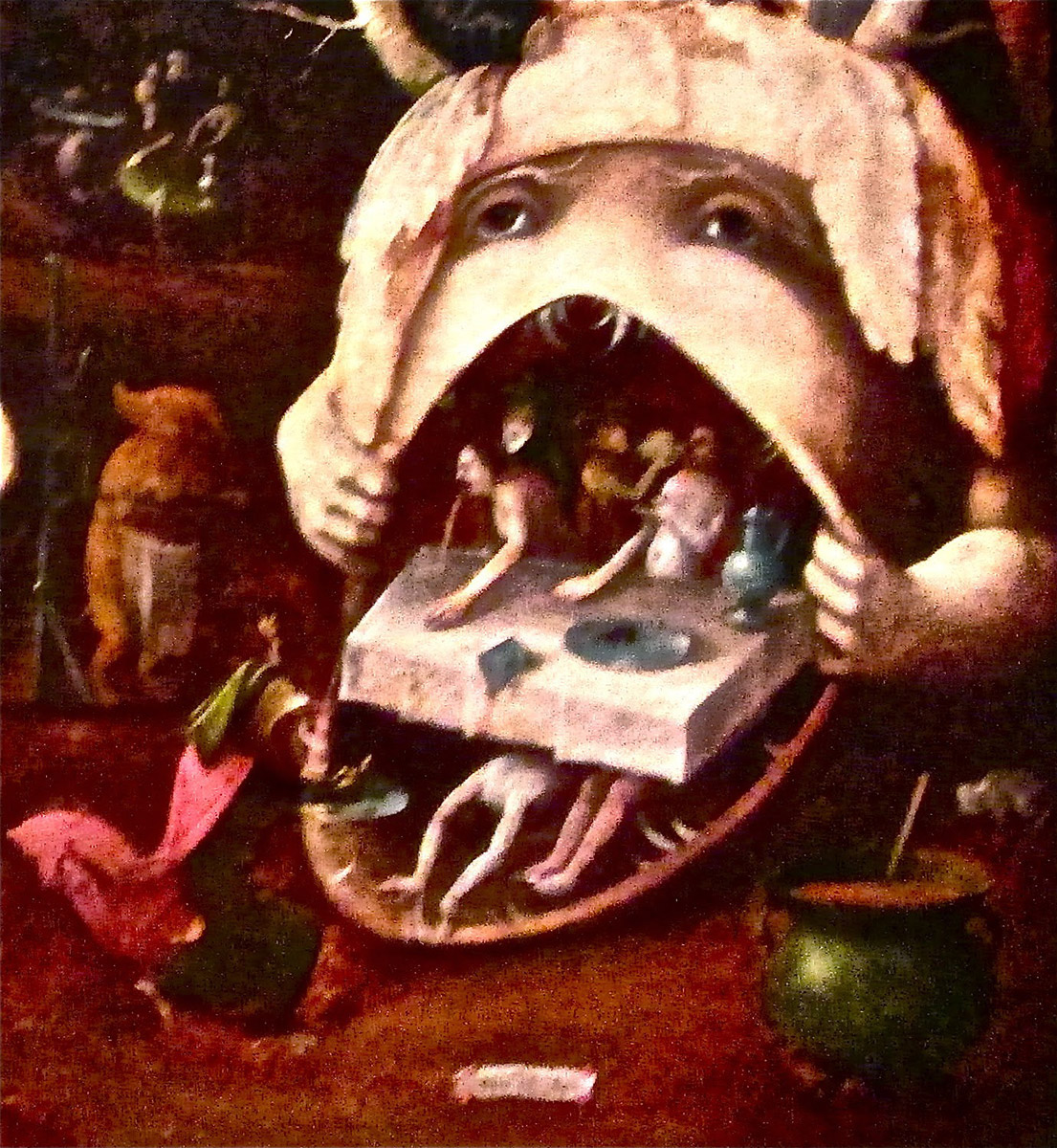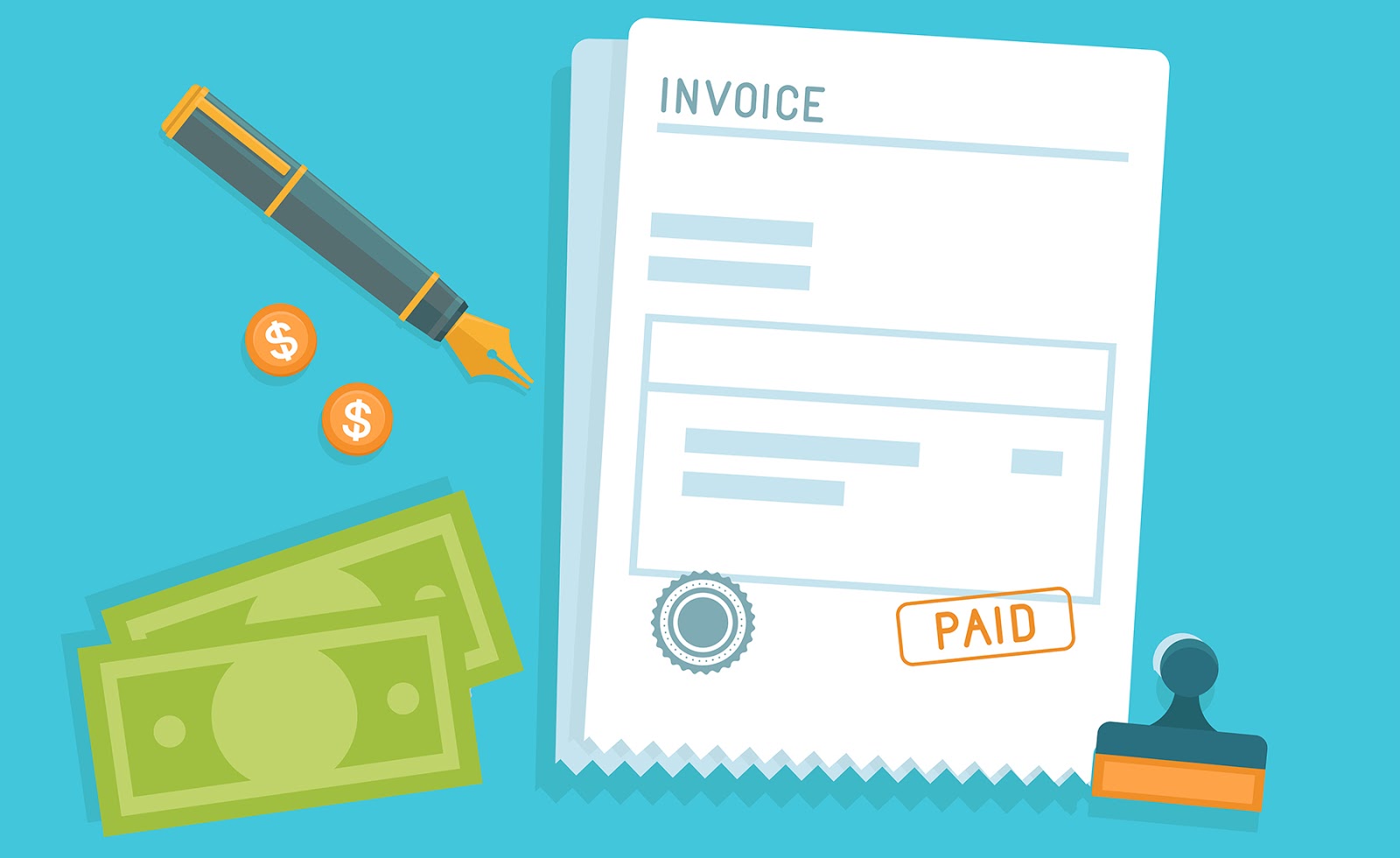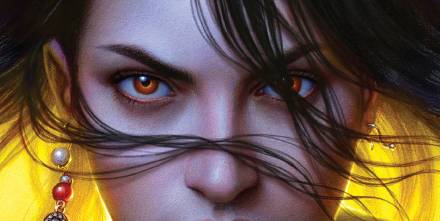I’m back this week with sin #4 in our series on The Seven Deadly Sins, as they apply to Art and Artists. This week I’m going to talk about Greed, in a very specific application that I see a lot, especially with students and artists that are young in their development.
Often this sin is interchangeably called “Gluttony” but Gluttony and Greed are not exactly the same thing…Gluttony is more about overindulgence in things, whereas Greed is about the acquisition of things. I think the example I’m going to use here is a bit of both, so we’ll title this post “Greed”, because I think that’s a bit closer, and “Gluttony” makes me think of that scene in Seven when the fat guy explodes and that’s just disgusting…
 |
| I always found David Seidman’s “Gluttony” really disturbing |
I spend at lot of time in environments where inexperienced artists have the opportunity to interact with professional and master artists: Conventions, classes like smArt School, seminars, Illustration Master Class, etc. I overhear a lot of conversations going on, and over and over again I hear the “younger” artists asking “What brushes do you use?” and it kind of makes me laugh. To me, as an Art Director, it’s so painfully obvious that the master’s skill has little to do with their tools. Sure, it affects the art if you use the wrong tool, but on the flip side there is no magic brush that is going to paint your picture for you. There’s a level of improvement in your work that better tools will give you, to a degree, and then it really tends to plateau off and only your skill remains. There’s no Photoshop brush pack that will make you bang out concept art like Daniel Dociu. There is no special canvas that will suddenly give your painting the texture of a Greg Manchess.
Yet I watch as these artists are hounded for their “secrets” — and if they do not give up the name of their favorite sable-hair watercolor brush, then they are “refusing to share”, or “don’t want competition”. As if all it would take is the leak of a Photoshop texture and anyone could make the same art that they do immediately. I was just talking to Victo Ngai about this at a recent talk she gave at the Society of Illustrators, after she got asked multiple times by the audience what exactly her methods were. As she started to break down the steps you could hear the crowd get a bit restless…it was too much work, it certainly wasn’t the simple answer the questioner had hoped to get.
I know the younger artists asking don’t think of it this way, but hounding an artist for their tricks implies that you think what they do is so simple that it can be bought or downloaded, and that’s it. That’s more than mildly insulting, folks. Not the way to talk to your art idols.
 |
| Bosch, as usual, being super-creepy. Detail of “Greed” |
This applies with both traditional and digital tools, but I think the attitude is even more prevalent in the digital world. Many artists make very good money off selling their Photoshop brushes and textures, and for the record, there’s nothing wrong with that, but I see so many artists much more obsessed with tracking down and acquiring and constantly striving to upgrade these brushes. And forget brushes and plugins, the same mania extends to Wacom pads, new Mac Books, rare pens, the perfect paint, medium, binder…it never ends, because no tool is going to make you a better artist on its own, it has to be your time spent practicing.
I went through a period of this shade of Greed in my early career after I graduated from SVA. I specifically had a book problem. I thought if I bought all the design annuals and collections of good design work, and all the Dover Picture Library books, and had all the reference material I could possibly need, then it would make me a better designer. Of course it’s important to have reference, and inspiration, and tools, but after a little while all it did was make me a slower artist. I was so insecure about my abilities that I spent more time looking for the perfect reference or inspiration than I did on my creation of the design. I had the hardest time ever actually starting a design. I spent way too much time on the pre-game, then rushed the design itself.
I know it’s comforting to think that there’s a magic key, a shortcut, a safety net, and if you buy that better brush then you won’t have to face what’s lacking in your technique…but, as an Art Director, let me tell you, you’re not fooling anyone. Put your time into your technique, and it will pay you back more than any fancy tool.
And you’ll save a ton of money too.






Lauren-
Exactly correct. One of the things students and beginners believe is that there's a trick. Learn the trick and you can do it too. There's no trick. Just hard work. I equate it to dieting. Why are there so many diet books and classes? Because everyone wants there to be a short cut, trick or gadet they can buy, when the “trick” is much easier. Work everyday for years. The sin may be “Impatience”. Thanks.
Lauren-
Exactly correct. One of the things students and beginners believe is that there's a trick. Learn the trick and you can do it too. There's no trick. Just hard work. I equate it to dieting. Why are there so many diet books and classes? Because everyone wants there to be a short cut, trick or gadet they can buy, when the “trick” is much easier. Work everyday for years. The sin may be “Impatience”. Thanks.
So true. I am such an art tool junkie at times and shopping is so much easier than actually drawing /painting through the creative plateau dammit;) Thanks for another great post Lauren!
I heard this so much in college (not directed toward me, obviously). All the kids were hung up on tools, brushes, and even software rivalries and I would just tell them that none of that matters because it's all in how you use the stuff. Any tool is a good tool in the right hands. Seeing interviews and Q&As with big name people, this always comes up too. It's like a big neon sign pointing to you that says “hello, I'm a kid that hasn't figured out where good art actually comes from.”
Thank you for this wonderful post! It helps to have a variety of brushes ( I have a tendency to want to paint everything with one brush), but I like that you highlighted the most important tool: the time spent practicing.
good analogy, it's exactly like fad dieting. Ha.
For the most part I agree with this post but I disagree that with asking an artist about process and their tools is insulting, found in this statement ” I know the younger artists asking don't think of it this way, but hounding an artist for their tricks implies that you think what they do is so simple that it can be bought or downloaded, and that's it. That's more than mildly insulting, folks. Not the way to talk to your art idols.” IMO asking is ok but I do agree that hounding is terrible. If they don't want to share leave the artist alone, respect the person, but talking shop with another artist younger or older is just part of the osmosis that goes on in our industry. I feel as an artist we are always growing and it is fun to experiment with new supplies and grow. There are a lot of new tools I use on a daily basis, that I would not know about or enjoy using as much as I do if artists didn't share, cough…Thank you James Gurney and all the Muddy Colors Artists. That said it is the hand behind the tool. I agree 110% about that and practicing the craft more then hoarding supplies and trying not to be a copy of an artist one admires. I just hope that students reading this won't be dissuaded about asking artists about process, though they should think twice about hounding them. I'll end with a great anecdote from Marshall Arisman about how he dealt with a hounding student:
“He, like most art students, believed that the secret to making great art was in the tool. What kind of brush did Rembrandt use? What kind of paper did DaVinci draw on?
His latest fixation was what kind of pencil did Bob Peak (his favorite illustrator) use to get that line?
To put an end to his question, I made up an answer.
“Bob Peak has a wooden hand,” I said, “blew it off reaching for a kraut grenade in WWII. Prosthetic hands not available, Bob carved a hand out of wood and painted it in flesh tones. He then drilled holes, the diameter of a pencil, in each finger. By inserting a pencil into the finger of his wooden hand he can move, open-palmed, over the paper and create that incredible line.”
He swallowed. Taking his face in his hands he looked into my eyes and thanked me from the bottom of his heart.
I had given him what all artists want…the secret.”
Great post. I had a similar experience talking at a college recently. I showed a lot of sketches from new and old sketchbooks, repeating, probably too much, that the point is to produce and create prolifically. Showing older books, then newer was to prove my point about growth, stating that the work was from stacks of books over ten years.
First question “What pen is that?”
We are in the era of oversharing. That's fine when it's what we ate for lunch and old photos and cat videos, but I am not just an artist, I'm running a business. My illustration is there for anyone to look at, but doing a step by step to teach what I do is NOT good business. It is NOT being greedy, it's being an artist. I too often see my fellow illustrators doing demonstrations, selling how to videos and can't understand why they would do it? Yes, it will make you slightly popular, maybe you'll have a bunch of hits or have more twitter followers, but in a short amount of time you'll also be making art that is less special. Be an enigma. Be nice, be thoughtful, but also search for a bit of longevity.
We are in the era of oversharing. That's fine when it's what we ate for lunch and old photos and cat videos, but I am not just an artist, I'm running a business. My illustration is there for anyone to look at, but doing a step by step to teach what I do is NOT good business. It is NOT being greedy, it's being an artist. I too often see my fellow illustrators doing demonstrations, selling how to videos and can't understand why they would do it? Yes, it will make you slightly popular, maybe you'll have a bunch of hits or have more twitter followers, but in a short amount of time you'll also be making art that is less special. Be an enigma. Be nice, be thoughtful, but also search for a bit of longevity.
I think the kids are looking for symbols, too. The tools used by the people they admire are talismans of successful work. They know they haven’t spent the years of private study to become a Jedi yet, but they want the lightsaber Now.
Also, I think if you buy the best brush, tools, materials, etc, you’re hit with a lack of technique straight away. There’s nothing left to blame.
I feel like if students have to ask anything, they should start asking about the 'why' behind a piece rather than the 'how'. What was the thought process behind the piece? Why do this thing instead of that, why create it in this certain process rather than another, why did this composition work for this piece but a similar composition fails for another…
Chances are the stuff they'd glean from that would be monumentally more nourishing than chasing the art supply dragon.
I think the asking for “What Brush are you using” by art students is a little insulting, but it is not meant this way. The student does not know enough yet to ask a deeper question. If they knew the kind of question to ask, they would do so.
I learned this from being a teacher of art. I find students ask these things also, but once I show them how light works, how Howard Pyle composed a painting or what blue skylight does to various colored surfaces when it hits them, they drop the simple questions and are captivated by the real nuts and bolts of making art.
Good post! I see a lot of this madness in the revival of atelier painting. I have known oil painters spending months trying to recapture the exact colors on William Bouguereau’s palette from 1901 — or spending weeks making a traditional gesso out of rabbit skin glue. There is a lust in oil painting for “lost secrets.” The really unfortunate thing is many painters can spend years trying to figure out a historical magic toolset to improve their craft, and while that is not a terrible thing, it is only late in the game that they ask – “what kind of painting is worth making today? What subject? What style? How do I make art relevant in 2014?”
I've been using the same set of brushes for about 3 years. And usually only about 4 of them actively.
I was definitely one of those who was curious as to what photoshop brushes “they” were using, and it took me a while to realize it didn't matter because what matters is finding the brushes you're most comfortable with, regardless who else may use them. I haven't seen anyone really using the main brush I use, but I love that thing and have to actively change to a different one sometimes for texture variation haha!
You read the part where i said “hounding” was rude, right?
If I didnt think it wasnt important for artists to talk shop and talk to younger artists I…wouldnt be here.
And thats a hilarious story.
Im not saying asking about tools is wrong, far from it. It's the obsession that is bad.
I have a fairly obsessive personality. I tend to collect things that interest me. Cameras, mechanical watches, and art stuff (primarily pencils, and graphite accessories).. I've never seen it as a negative thing.
I probably own 10k wood pencils, lead holders, pencil extenders, sharpeners and the like. My travel pencil kit is a full size automotive tool box. I also have many, many sketchbooks and types of paper.
I have folks ask me all the time what pencil or paper I'm using. I've never thought of it as rude or intrusive. It's the using of a broad range of tools that allows you to decide what's right for you in a certain situation.
To be concise, Lauren said “but hounding an artist for their tricks implies that you think what they do is so simple that it can be bought or downloaded, and that's it.”
Tricks and process are two different things. Learning process can be very valuable for a student, because process is important. More so when working traditionally, because sometimes you have to use materials in certain order. Have to now how things are going to interact.
This is a great post. Sometimes people ask me what brushes I use, and I say one brush – the default Photoshop round brush.
I recently wrote a post on a similar topic called “Don't Start With Digital.” http://kmcmorris.blogspot.co.nz/2014/11/dont-start-with-digital.html
“They know they haven’t spent the years of private study to become a Jedi yet, but they want the lightsaber Now.” I love this!
I agree more that is far more of an issue in digital art. I think when painting with oil/acrylic (and I am only 18, so I don't have a huge amount of experience), using higher quality (and thus generally more expensive) paint can make a difference to your work, so asking what paint someone used could actually help? For quite a long time I used some pretty crappy daler rowney student grade oil, and some equally awful brushes and I did find it harder to make aesthetically pleasing images, because the paint lacked the quality of Micheal Harding/Vasari etc. Brushes can again, also make a difference, as can pencils; using a supermarket pack of HB pencils is going to make some rather unappealing art, and perhaps frustrate you. I apologise if this comes off as rude, just my opinion! (also, as a student, I think some of you are generalising! I've never asked someone what paintbrush their using! Who cares eh?)
The, What Brushes Do You Use question seems to be the catch all question for more experienced artists to spot a student that might be more focused on being like someone rather than finding their voice.
It's a very frustrating question, because the only best answer is, whatever brush that makes a mark that pleases you. And to find that, you have to try all the brushes and make a million marks and then you will know, what is the right brush. Same with paper and canvas. But, that's expensive to do as a student.
Some students just want that moment of interaction with their idol and it's the only thing they can think to ask.
The more you talk to students, the more you will hear that and other questions. And the thing is, in a talk, there's not much time to really go over your process. Not to mention, your process is often a combination of years of experience, practice, ideas, failures, and more.
I'm a digital artist, who's work process looks very traditional. Heck, I sketch digitally and select the blue colored pencil when starting a new sketch. My choices to work digitally have more to do with how I work, then with any idea that it will make me better. It allows me to work in a way that I'm most comfortable. There's really a lot of push and shove in my development of an image. Sometimes I think of it like working with clay. Lets push this out, lets refine this.
Working digitally isn't going to make you do that. That's just how my brain works. And that, I can't explain. I can show you all the techniques in Photoshop and painter I use. Guess what. It's far better to read and experiment on your own. What you come up with won't be a second rate version of the things I do.
So, I find the Brushes question frustrating, but I try and put myself in the students shoes. (and no I never asked that question when I was young, but I do understand why it gets asked)
There was a time when Frazetta was a virtuoso with watercolor and a young artist asked him what kind he used. Frank replied, “Oh, just some Mickey Mouse set,” which made the artist think Frazetta was trying to protect some secret technique…but he wasn't. Frank liked to use a dimestore set of cake watercolors for kids (that came stuck to a cardboard backing) marketed under Mickey's name along with the cheapest brushes he could find. So it's like I've always said, whether about traditional or digital methods: it's not the tool, but the artist that uses the tool that matters. 🙂
I agree. When I was in art school, I thought if I could just find the right brush… However, if the right person asks the question, the outcome can be dramatic. My wife sat in on the Gregory Manchess demo at Spectrum live last May. She asked what kind of paint he uses and has since started using that brand in her paintings. As a result the quality of her work has improved and her speed has improved. The difference is, she is already a highly skilled artist. She simply discovered a medium that makes it easier for her to do what she is already good at.
Hrm, is that really “greed” though? I feel like impatience or anxiety (avoidance of getting started) is a more appropriate term?
Words aside, I think it's really easy for new artists to fall into the trap of becoming obsessed with finding the holy grail of materials. Thinking back to when I was a student, I was definitely guilty of that. (The James Jean pen, anyone?) It almost became some sort of mix of denial and laziness. Denial that I didn't actually have an an enlightenment from picking up the same tool as my favorite artist and that maybe I wasn't as naturally gifted as I had previously thought. And laziness for thinking I can cut corners with a magical tool and not put in hours of practice.
No matter what you do, you need to put in hours and hours of practice and that's that. And yes, while there's better quality and grades of tools, the quality of the tool is only as good as the person using it.
Not to mention tools & materials are so personal. A teacher of mine back when I was at SVA; when he was asked what paper he uses to make art, he looked us straight in the eye and said something along the lines of “Go to the store. Go to the store (NY Central Art Supply is what he was referring to at the time) and spend an afternoon there. Look at all the paper. Feel all the paper. Really, just feel the paper, the weight, the grain. Touch it with your hands. Get a feel for the material you're using. Buy some that you think will work for you and try drawing on it. That's your homework. I'm not going to look at what you did.” The students in the class laughed after class, “haha! I'm not doing that, what a weirdo! I'm not 'feeling paper' all afternoon I have better things to do! If he's not looking then I guess we have no homework!”
I loved that answer and it resonated with me over the years because he never told us what he used, he encouraged us to explore our options and just start drawing.
The James Jean Pen was the clearest example of this for me. Some cheap ass Japanese Bic pen but if you have it you can draw like Jean. The sales for that thing went through the roof. I still answer politely when asked tool questions but always with the caveat of, but it's an ordinary tool until you take it to the master on top of Mt. Drawferyears and get it blessed. It's OK to gather info but knowledge is not wisdom or mastery. Wow, very zen-like sentence.
I am still a book glutton Lauren. That probably will never change.
First off, thanks Lauren for this great series of articles! As a more “mature” painter getting back into illustration after a long time, I find them invaluable to get a lay of the land in the modern scifi/fantasy illustration scene and professional expectations.
Matt, as mentioned you misunderstood the basic supposition. There's a point where one crosses the line into insulting. As artists we always want to keep learning and developing – and there's no better way than talking shop with fellow artists.
In my former life I was a national award-winning miniature figurine painter (for D&D, wargames, etc.) We painted 1 inch pewter minis to standards comparable to full-scale illustrations, which as you can imagine takes a lot of exacting work, a steady hand, and a gamut of techniques (just like all art).
I taught at many national cons, alongside other top painters. We always freely shared our techniques and were very accommodating to painters of all skill levels, from rank beginners to professionals.
One of the first things I told them was “There's no magic bullet!” You learn the technique and then practice, practice, practice…. A typical mini can take anywhere from 20-60+ hours to complete. Much more for dioramas, etc.
Most painters took this very much to heart and it was gratifying to see how they developed over time. It was almost akin to a mentor-ship, where we'd see the same painters up their game year after year until they began winning prizes and started teaching the next generation behind them.
To illustrate where comments can cross the line, here's an anecdote from another painter – she is internationally-known, has won most of the top awards in our hobby, and paints professionally for companies in the industry. I've watched her develop her technique for over 15 years to the point where her 25mm figurines are almost indistinguishable from full-size paintings.
She taught a class at one of the cons. After the two hours it was Q&A time. One of the students, who'd sat dutifully through the whole thing said:
“Thanks, that's great. Now can you tell me how you _really_ do it?”
“What do you mean?”
“You know, the quick way to do what you just showed us.”
You can imagine her expression and lack of response to that question…
For me that question was a very scientific one. If I use rre sane brush/ pencil/ paper whatever then I know its not that I have crappy tools, but that I've haven't mastered the skill yet. I always found ruling that out helped me relax. I never had to wonder if the drawing was bad because I was using something as unwieldy as a bar of soap. So honestly I see pros say its not the tool, and I understand that, I really do. I have a friend that is obsessed with the bankrupting himself on the latest cintique or whatever, but still can't draw well with a number two pencil; I think he is suffering from the problem you are talking about. On the flip side however how many times have you heard pros advise student not to skimp on nice brushes or quality paint? Quite often I'll bet. There has to be a balance somewhere in the middle I think.
On a flip note, sometimes using your “preferred” tools can back-fire. As I mentioned in my earlier reply I paint miniatures. The go-to tool for these is the kolinksy sable brush (Isabey, Da Vinci, W&N Series 7, etc.) for their superior ability to hold a fine point and minute amounts of paint for this scale of painting. In fact, we actively encouraged people to use only these brushes and avoid nylons (nylons curl the tip rapidly in this kind of work…)
BUT, when I went back to painting on illustration board on a larger scale I tried to use some of my old kolinskys, and just ended up ruining them! They're not appropriate to the scale. Too soft and the acrylic ate them alive… (In minis, we rarely paint on areas bigger than a few millimeters at a time, and use tiny amounts of paint.)
Instead I went shopping for new brushes and found the nylon W&N Cotman series, which are excellent for this work! Soft enough for smoothing paint but come to a sharp point. Not as sharp as my old kolinskys (which I use for dotting details) but the right brush for the medium.
Proof that the “right” brush can be wrong! 😉
Ha! I bought a box of those pens. Nearly poked my eye out.
Being closer to the inexperienced end of the illustration spectrum I don't know what it is like to be hounded about my tools 🙂 But, I also do photography as both a hobby and the occasional shoot for local magazines. It always makes me smile when someone, impressed by a photo, proceeds to tell me that I must have a great camera.
Jameson Gardner
That's a lovely way of phrasing it! It's often really nice to know that a major artist uses the same nib I've settled for, or only uses Photoshop Elements and Inkscape. It creates a benchmark – okay, the difference is experience/style/knowledge.
I've found the information vs 'hounding' divide tends to fall along physical vs digital lines. If people are asking about physical brushes, paper, etc they tend to be trying to understand or share information.
With digital brushes, there still seems to be more of a feeling that a particular texture or line is the key to a successful image, instead of the underlying skill and drawing ability.